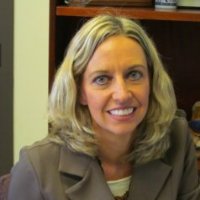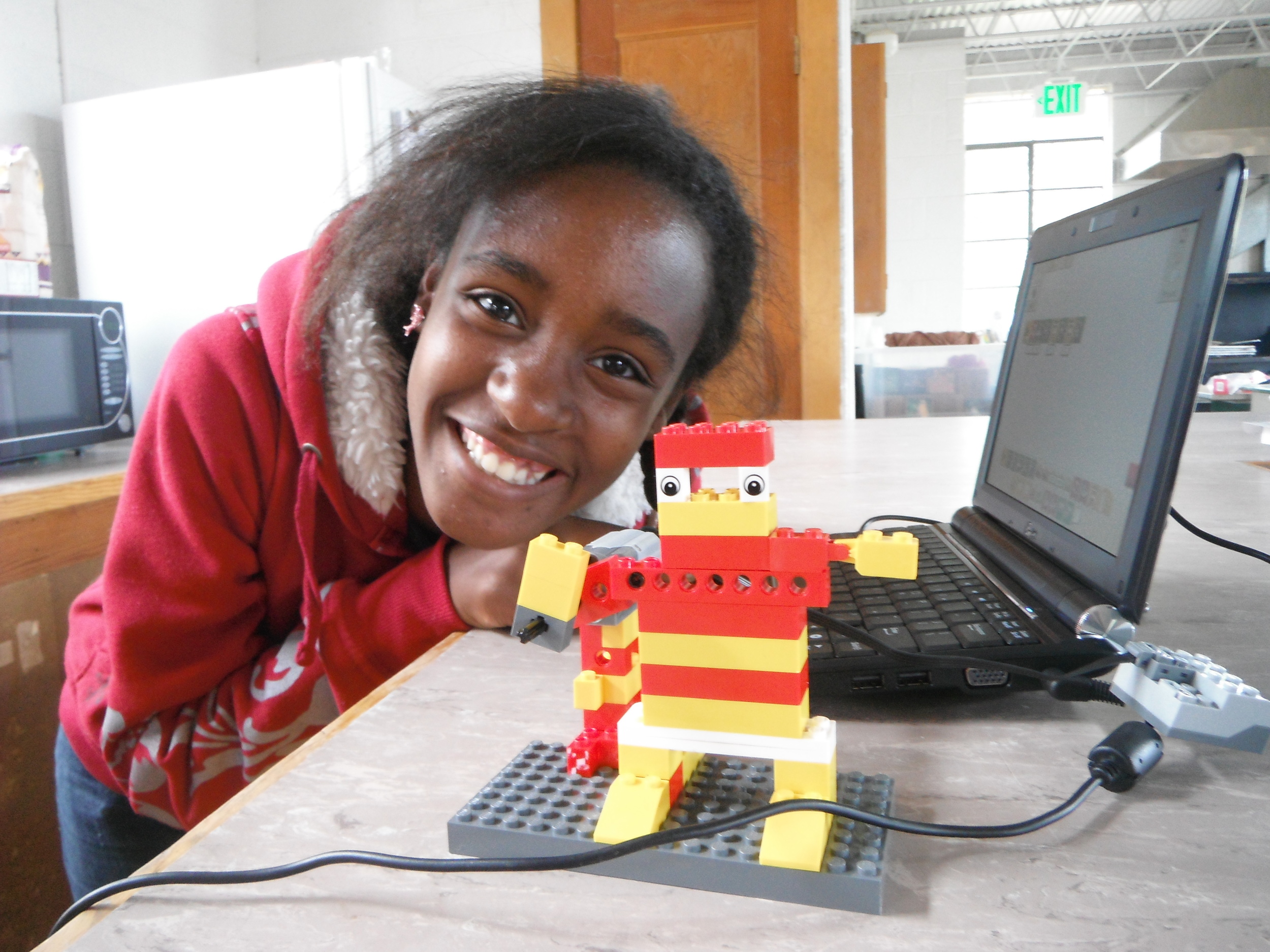 We came across this article by Dr. Barbara Moskal via LinkedIn and decided to reach out to her for an interview. We're delighted that she replied! Dr. Barbara M. Moskal is a Professor of Applied Mathematics and Statistics and the Director of the Trefny Institute for Educational Innovation at the Colorado School of Mines. She is also an associate editor for the Journal of Engineering Education. The opinions expressed herein are hers and do not necessarily reflect that of her colleagues or affiliations. Her passions and her work lie in changing the equation for attracting and training students of all ages to STEM.
Camp Spring Creek: In your article about dyslexia and STEM (Science, Technology, Engineering, & Mathematics), you explained the following: "According to Davis and Braun (2010), in 'The Gift of Dyslexia,' many dyslexic students naturally use three-dimensional reasoning as a technique for problem solving. When dyslexic students encounter a problem solving situation, they naturally change their three-dimensional perspective and examine the problem from various angles without shifting their observation point." But a typical classroom doesn't necessarily engage students with spatial learning opportunities, or the chance to creatively solve something through a student's own best means. How would you advise professionals to create lasting change in our education system that encourages acceptance of creative problem solving?
We came across this article by Dr. Barbara Moskal via LinkedIn and decided to reach out to her for an interview. We're delighted that she replied! Dr. Barbara M. Moskal is a Professor of Applied Mathematics and Statistics and the Director of the Trefny Institute for Educational Innovation at the Colorado School of Mines. She is also an associate editor for the Journal of Engineering Education. The opinions expressed herein are hers and do not necessarily reflect that of her colleagues or affiliations. Her passions and her work lie in changing the equation for attracting and training students of all ages to STEM.
Camp Spring Creek: In your article about dyslexia and STEM (Science, Technology, Engineering, & Mathematics), you explained the following: "According to Davis and Braun (2010), in 'The Gift of Dyslexia,' many dyslexic students naturally use three-dimensional reasoning as a technique for problem solving. When dyslexic students encounter a problem solving situation, they naturally change their three-dimensional perspective and examine the problem from various angles without shifting their observation point." But a typical classroom doesn't necessarily engage students with spatial learning opportunities, or the chance to creatively solve something through a student's own best means. How would you advise professionals to create lasting change in our education system that encourages acceptance of creative problem solving?
Dr. Moskal: Realistically, scientists and engineers use spatial reasoning everyday. The jobs available in these areas are very rewarding from both a intellectual and financial perspective. All students should have the opportunity to understand science and engineering through the manipulation of their physical world. Not only would this build on the natural abilities that some dyslexic students have but also it is likely to inspire more students’ interests in these lucrative and necessary fields.
Science and engineering were developed using three dimensional reasoning, physical manipulation and experimentation; it is not natural or inspiring to teach these subjects void of these features. If we want students to think like scientists and engineers, then we must allow them to experience science and engineering as the professionals do— through curiosity, experimentation and physical manipulations. Scientists and engineers do use the knowledge of the past and this often requires reading— but this reading is inspired by curiosity and a desire to learn and understand.
In order to implement such a change in the classroom, teachers— especially those who teach science, engineering and mathematics— need to experience science. They need professional development opportunities that allow them to experiment and explore — driven by curiosity and experimentation. What teachers do not need is more text based assignments to give to their students. Science is hands-on. We need to teach it that way.
CSC: Like you, we believe in the importance of early intervention. Can you tell us about one or two organizations or schools that you think are addressing this in compelling, successful ways?
Dr. Moskal: Currently, I am the Director of the Trefny Institute for Educational Innovation at the Colorado School of Mines. Each summer, this institute participates in the Rocky Mountain Camp for Dyslexic Youth (Director: Joyce Bilgrave). We participate in this effort because we believe in the scientific capabilities of these students. Students who struggle to read need to have the opportunity to participate in activities in which they can be successful. Science and engineering offer such activities. For two weeks of this five week camp, we provide hands-on activities that allow students to experience hands-on scientific and engineering learning. Most of the students are excited to come to their one-hour science unit. For many of them, after a challenging morning of reading, science is just plain fun. My graduate students and I have a blast too, because we know science is fun.
CSC: Playing devil's advocate, there are many reasons people might argue in favor of our current education system, which emphasizes literacy above STEM. For example, in order to drive a car and read directions, it's best if you can read. In order to earn a license, in fact, you have to read the laws and pass the test. You don't have to understand mechanical engineering or how your car works in order to drive it from point A to point B...and you don't have to know how the photocopier works that made copies of the test you took, in order to take it. Help us understand the argument in favor of "more STEM" a little bit more, as though you were explaining it to a skeptical parent.
Dr. Moskal: Students do have to learn to read. However, they also need STEM literacy and many of our young dyslexic students can succeed, and succeed at a very high level, in STEM. Yes, please keep teaching our kids to read, but please also let them experience the joy of science, engineering and mathematics. When I was young, children were permitted to have talents in different areas and to develop these talents at different rates. Some students were excellent in English while others were excellent in mathematics. We need to allow all of our children to develop their talents— whether it be English, science, mathematics or the arts. Please stop removing dyslexic students from science, an area in which they may be able to flourish. Mathematical and scientific curiosity can motivate students to read. It is a different type of reading— reading to learn, something scientists and engineers do everyday.
I want to emphasize that reading is very important and our dyslexic students need to learn to read. They also need to experience success and maybe that success will be in STEM. These students aren’t failing, they are failing to learn to read at the pace that society currently demands. Let’s give them school based subjects in which they can succeed (and that are known to be intellectually challenging)— science and mathematics. Based on our experiences at the Rocky Mountain Camp, when given the chance, these students can succeed in STEM.
I recently wrote an article which will appear in Prism, a magazine that is produced by the American Society for Engineering Education. I was asked to write about students with disabilities and I decided to focus on dyslexia. For that article, I decided to seek out colleagues who are scientists and who had been diagnosed with dyslexia. I wanted to offer success stories as examples of what dyslexic students can achieve. The idea to focus on colleagues occurred to me in the morning and I found a match for my article by that afternoon. I hadn’t officially started my search; I just mentioned the article during one of my meetings and an attendee of that meeting spoke to me afterwards. He shared his success and his childhood diagnosis. I can’t help but wonder how many scientists struggled to learn to read, and once they succeeded, forgot about or denied that struggle. It is not a popular thing in the scientific world to admit that learning was once difficult, but I suspect that for many it was.
How many dyslexic children can become successful scientists and engineers if only they were told that they can succeed (and better still— experience that success)? How many children with dyslexia can succeed if they had a role model with the same disability who has succeeded? Let’s set the bar high for all of our children, including those with dyslexia.
CSC: We're really big fans of the Orton-Gillingham approach to learning about the structure of language and find that it is immensely helpful for students with dyslexia--the same students, of course, who more often than not will prove to be very talented in other subject areas, such as STEM. For those of us who don't take naturally to the STEM subject areas, however, what would be the "OG of STEM," so to speak? In other words, for those who show little talent or gifts in the STEM areas (which is different than having a learning difference, we know), what approach or technique might "unlock" these areas?
Dr. Moskal: We all learned through play when we are young; play is instinctual. I play every single day— and it is called science. The OG of science is experimentation and hands-on learning. Unlock the toolkit and allow children to do what they do well— play. Our children need to experience play that is directed to scientific and engineering learning. Play with purpose. Play with enthusiasm. This requires hands-on, physical manipulation and curiosity driven learning. I want all of our children to play.

